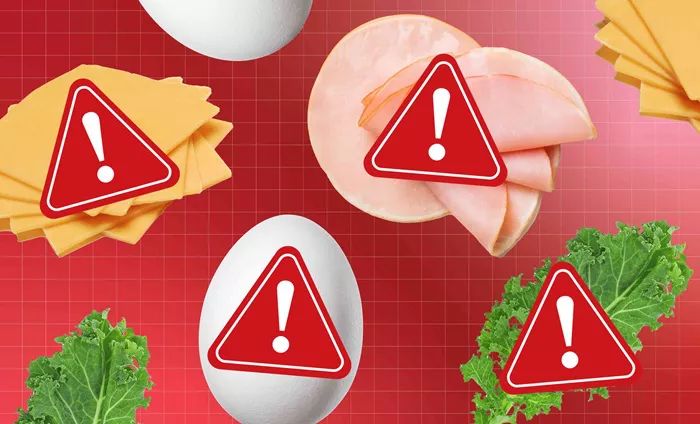In 2024, nearly 40% of food recalls were caused by contamination from Listeria, Salmonella, or E. coli. Hospitalizations and deaths due to contaminated foods have almost doubled. According to a recent Consumer Reports study, here are the 10 riskiest foods and how to consume them safely:
1. Deli Meat
Over 7 million pounds of deli meat were recalled last year due to Listeria. Bacteria spread easily in processing plants and on deli equipment. If you’re pregnant, immunocompromised, or under 5/over 65, consider microwaving deli meat for at least 30 seconds before eating.
2. Cucumbers
Salmonella contamination in cucumbers typically comes from animal waste in soil or water. Wash thoroughly and avoid damaged or bruised cucumbers.
3. Raw Milk & Raw Milk Cheese
Raw milk and cheese can carry Salmonella, E. coli, and even bird flu. Pasteurization kills harmful bacteria, so stick to pasteurized products for safety.
4. Cotija & Queso Fresco Cheese
Soft cheeses with high moisture content are breeding grounds for Listeria. If you enjoy these cheeses, cook them thoroughly to reduce risk.
5. Eggs
Eggs are commonly contaminated with Salmonella. Always cook them thoroughly and use pasteurized eggs for raw preparations. Clean hands and surfaces after handling.
6. Onions
Onions have been linked to E. coli outbreaks. Peel the outer layers, wash thoroughly, and cook them to lower risk.
7. Leafy Greens
Greens like lettuce are vulnerable to E. coli and Listeria from contaminated water or soil. Wash well, discard outer leaves, and consider hydroponic options.
8. Organic Carrots
An E. coli outbreak affected organic carrots in 19 states. Wash, peel, and preferably cook to stay safe.
9. Basil
Basil is prone to Salmonella contamination, especially when consumed raw. Rinse thoroughly or cook before eating.
10. Cooked Poultry & Meat
Even ready-to-eat meats can be contaminated after processing. Reheat frozen or pre-cooked products to 165°F, and keep premade salads refrigerated.
The Bottom Line
While these foods carry risk, safe handling and preparation can greatly reduce it. Wash produce, cook foods thoroughly, and monitor food recalls regularly to protect yourself and your family.
Related topics:


